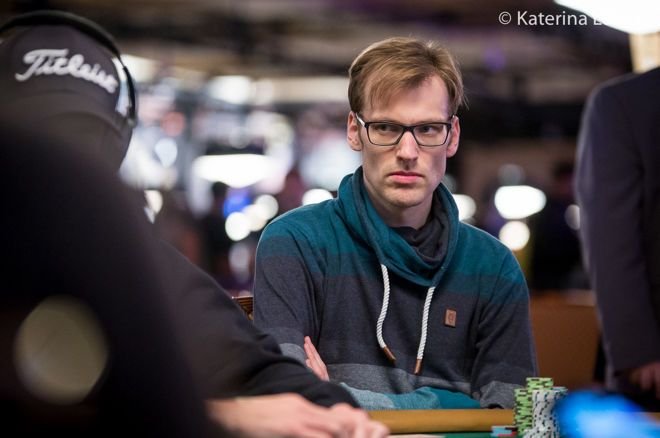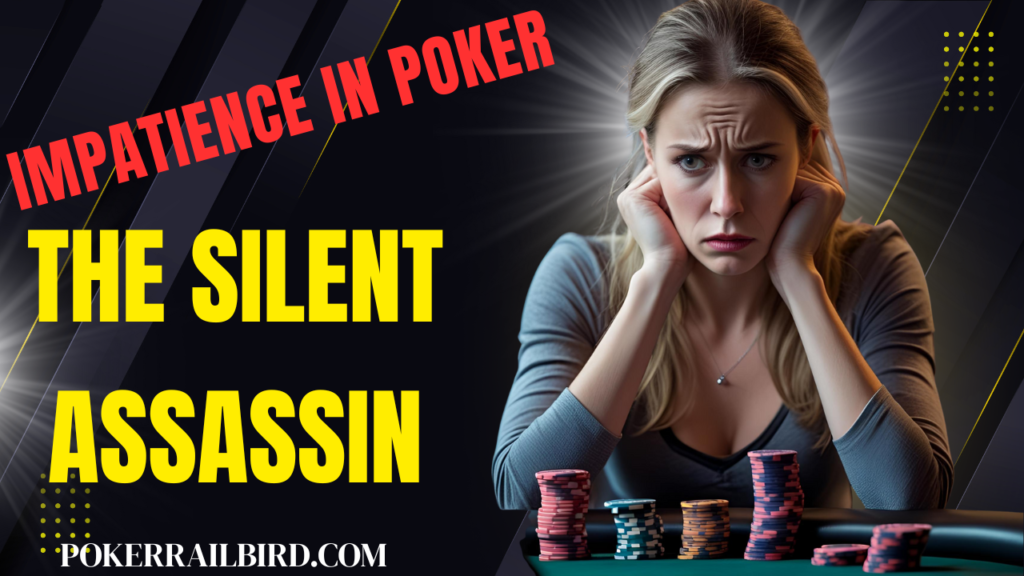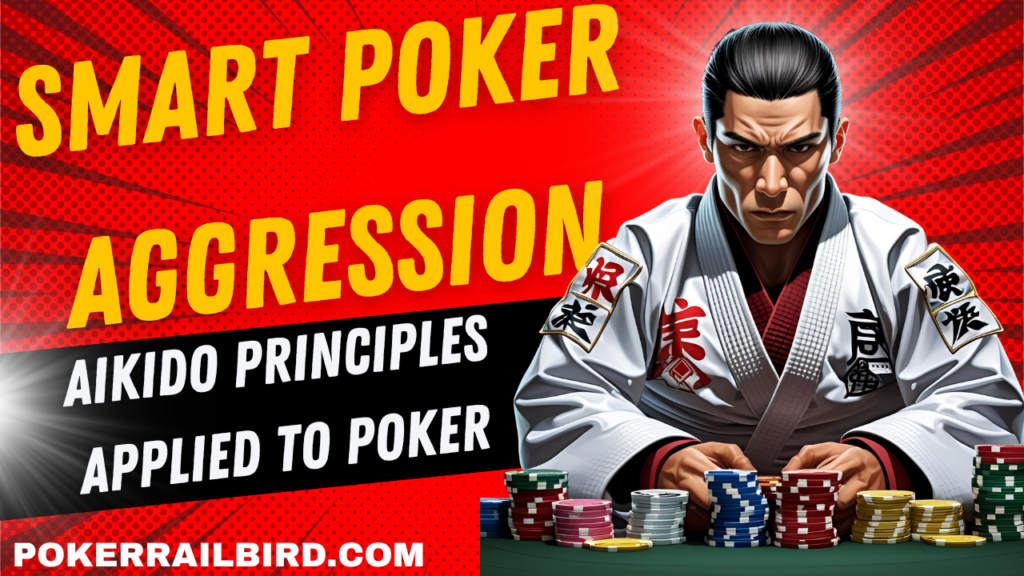THE POWER OF PATIENCE IN POKER
The Power of Thoughtful Patience is one of the most overlooked skills in poker. A lot of players, including myself obsess over pot odds, hand ranges, and advanced strategies, as we should. But, the ability to pause, assess, and make rational decisions under pressure is what separates great players from the rest.
Many players mistakenly believe patience is just about folding bad hands and waiting for premium holdings. But true thoughtful patience goes much deeper—it involves:
Thinking ahead—not just about your next move, but how your decision now impacts future streets.
Observing everything—from betting patterns to opponents’ tendencies and even subtle physical tells.
Managing emotions—avoiding snap decisions driven by tilt, frustration, or overconfidence.
The difference between a winning and losing player often comes down to who takes the time to make better decisions—not who plays the most hands or wins the biggest pots.
This article explores how patience shapes every aspect of poker—from hand selection and reading opponents to avoiding costly mistakes and capitalizing on opportunities. Whether you’re a seasoned pro or just starting out, mastering thoughtful patience will elevate your game and give you a long-term edge at the table.
THE TRUE ROLE OF PATIENCE IN POKER
Patience in poker isn’t just about waiting for good hands—it’s about maintaining a thoughtful, strategic approach throughout every phase of the game. While many players associate patience with tight play, its real power lies in decision-making, observation, and long-term profitability.
A patient player doesn’t just sit back and fold bad hands. They:
Think ahead—considering how each decision now affects future streets.
Observe opponents—identifying patterns, betting tendencies, and potential weaknesses.
Control emotions—avoiding rash decisions based on frustration, boredom, or tilt.
Maximize value—knowing when to apply pressure and when to wait for the right spot.

PATIENCE VS. PASSIVITY: UNDERSTANDING THE DIFFERENCE
A common mistake is confusing patience with passivity. Passive players fold too often, rarely bet for value, and let aggressive opponents control the game. Patient players, however, are selective but aggressive, striking at the right moments when the odds and circumstances favor them.
🔹 A passive player folds too often and avoids risk.
🔹 A patient player picks their spots wisely and capitalizes on opportunities.
THOUGHTFUL PATIENCE STARTS THE MOMENT THE CARDS ARE DEALT
Patience in poker isn’t just about waiting for good hands—it’s about actively thinking ahead from the moment you look at your hole cards. Every hand presents a decision tree, and how you approach each street before it happens determines the strength of your overall strategy.
Thinking Ahead: The First Level of Patience
A thoughtful player isn’t just thinking about their current decision—they are anticipating how this decision will impact the next one. Before taking action, they ask themselves:
What If I raise, what types of hands will call me?
If I just call, how will my opponent interpret it?
If I fold, am I missing a profitable opportunity?
What happens on the turn or river if I continue?
Patience here doesn’t mean waiting longer to act—it means taking a moment to visualize the future of the hand before committing chips.
POSITION MATTERS
CONSIDERING THE IMPACT OF YOUR ACTIONS ON FUTURE STREETS
Your position at the table affects how patience should be applied. A well-timed fold in early position prevents trouble later, while waiting for key opportunities in late position can allow you to maximize profits.
Early Position: Patience means being disciplined with starting hand selection since many players act after you.
Late Position: Patience means waiting for weaker players to make mistakes before capitalizing on them.
By thinking beyond the current action, patient players make better preflop choices that set them up for success on later streets.
Every move you make affects what comes next. Many players make decisions in isolation, failing to connect preflop action with post-flop strategy. Thoughtful patience ensures that you always consider the bigger picture.
Example:
Let’s say you raise with K♠ Q♠ in middle position. Instead of just focusing on the immediate outcome, you should ask yourself:
If I hit top pair, do I have a strong enough kicker to continue aggressively?
What if I get called by a tight player, what hands are likely in their range?
If the flop brings a straight or flush draw, how should I adjust my play?
By practicing thoughtful patience, you approach every hand with intention, rather than reacting emotionally or instinctively.
PATIENCE IN ACTION: PREPARING BEFORE IT'S YOUR TURN TO ACT
Good players don’t just wait for their turn—they are studying the table while others act. Before the action reaches them, they already have:
An idea of what their move will be based on their hand and position.
A read on opponents’ tendencies based on their past actions.
A plan for future streets in case the hand continues.
Instead of rushing to act, patient players take a few extra seconds to process information, ensuring they make the best possible decision.
Key Takeaways for Thoughtful Patience in Poker
Patience isn’t about waiting—it’s about thinking ahead.
Your decisions should always connect to the next street.
Position influences how you apply patience.
The best players prepare for their move before it’s their turn.
By mastering thoughtful patience, you can stay ahead of your opponents, avoid costly mistakes, and make more strategic, profitable decisions.
THE DISCIPLINE TO FOLD-AVOID TEMPTING BUT COSTLY HANDS
UNDERSTANDING HAND STRENGTH BEYOND JUST CARD VALUE
One of the hardest things for many players to do is fold hands that look playable. Hands like J♣ 10♠, Q♥ 9♥, or A♠ 5♣ may look decent, but without the right position, stack sizes, and opponent tendencies in your favor, they can become trouble hands.
Impatience Leads to Leaks – Many players justify calling just to “see a flop,” but that’s a long-term losing habit.
Thoughtful Patience means asking:
1. Am I in position?
2. What’s my plan for this hand if I get raised?
3. If I hit top pair, will my kicker be strong enough?
By patiently waiting for situations where your hand has real playability, you avoid unnecessary losses and preserve your stack for stronger opportunities.
Not all playable hands are created equal. Thoughtful patience means understanding the true strength of your hand in context, not just whether it looks good on the surface.
👉 Example: A hand like K♠ J♠ is much stronger in late position when you can control the action than in early position, where you could be dominated by better kickers.
👉 Example: A hand like 8♦ 7♦ is far more valuable in a deep-stacked cash game than in a tournament, where speculative hands carry more risk due to the increasing blinds.
Thoughtful patience helps you evaluate not just your cards, but also the situation you’re in before deciding to play.
POSITION DICTATES WHICH HANDS YOU SHOULD PLAY
HAND SELECTION & FUTURE STREETS-THINKING AHEAD
A key concept of thoughtful patience is understanding that your position should shape your hand selection.
Early Position: You should be playing only premium hands since many players are still left to act.
Middle Position: You can start widening your range slightly but still need caution.
Late Position: You have the most flexibility, as you get to see what everyone else does before making your decision.
🚨 Impatient Players Ignore Position – They play the same hands regardless of where they sit, leading to avoidable post-flop mistakes. Thoughtful patience respects position and adjusts accordingly.
.
Thoughtful patience doesn’t just stop at preflop—it requires thinking about how a hand will play out on later streets. Before playing a hand, ask yourself:
If I hit top pair, will I have kicker problems?
What If I hit a draw, do I have the right odds to continue?
If I miss the flop, will I be able to apply pressure or will I have to fold?
The biggest mistake impatient players make is not considering how a hand will play out after the flop. Thoughtful patience ensures that every hand you enter is part of a well-planned strategy.
BANKROLL PRESERVATION-FOLDING IS AN INVESTMENT
Every hand you fold preserves chips for a better opportunity. Many players see folding as “boring,” but in reality, folding is a skillful investment in your long-term profitability.
💡 A common misconception: “If I fold too much, I’ll get blinded out.”
✅ Reality: If you fold marginal hands, you keep your stack healthy and maximize the times you play strong hands in favorable situations.
Patience allows you to conserve your bankroll, avoid risky spots, and set yourself up for better opportunities down the road.
Key Takeaways for Thoughtful Patience in Hand Selection
✅ Patience isn’t just about waiting—it’s about playing hands that have long-term profitability.
✅ Impatient players leak chips by calling too often with marginal hands.
✅ Position dictates which hands you should play—adjust accordingly.
✅ Hand selection isn’t just about the pre-flop stage—it impacts future streets.
✅ Folding is an investment—each hand you avoid playing poorly is a hand you can play well later.
By practicing thoughtful patience in hand selection, you will avoid common pitfalls, make better long-term decisions, and put yourself in the best position to win more and lose less.
USING THOUGHTFUL PATIENCE TO READ OPPONENTS
In poker, reading opponents is an essential skill that requires patience, observation, and strategic awareness. Thoughtful patience allows you to gather valuable information over time, rather than making hasty assumptions based on a single hand. Every player has habits and tendencies, and by patiently studying them, you can make more accurate predictions about their actions.
To effectively read opponents, you must observe their hand selection, betting patterns, and physical behaviors throughout a session. Here’s how thoughtful patience helps you refine your ability to assess your opponents.
OBSERVING SHOWDOWN HANDS & POSITIONAL AWARENESS
One of the most effective ways to build a profile on an opponent is by watching the hands they play when they reach showdown. This reveals crucial information about their tendencies, including:
- Are they playing any two cards, or are they more selective in their starting hands?
- Are they positionally aware, playing stronger hands from early position and looser hands from later positions?
- Do they slow play big hands, or do they play them aggressively?
- Are they overvaluing marginal hands, such as playing weak kickers too strongly?
This level of observation allows you to adjust your strategy accordingly. If you identify a player who plays too many weak hands, you can isolate them with stronger holdings. If a player only plays premium hands, you know to give them respect when they enter a pot.
Key Takeaway: Pay close attention to what hands reach showdown and from what position they are played. This provides invaluable data on an opponent’s range and decision-making process.
INTERPRETING OPPONENTS BEHAVIOR BEFORE THEY ACT
The way a player behaves before it’s their turn to act can offer strong indications of whether they want action or not.
- Signs of Strength Before Acting:
When a player has a strong hand and is waiting for you to act, they will tend to look at you very little. They may even avoid looking at you altogether, instead focusing on the table or looking away entirely. This behavior often signals confidence—they are comfortable with their hand and are trying not to influence your decision. - Signs of Weakness Before Acting:
When a player has a weak hand and is waiting for you to act, they will often look at you more. They may even stare at you, attempting to gauge whether you are likely to bet.
There are several reasons why players with weak hands might display this behavior:
- An Instinct to Watch for Danger – A player with a weak hand is essentially on high alert, subconsciously monitoring you for signs that you might bet.
- A Defensive Act – When a player watches you intently but doesn’t want a bet, there may be an element of, “I’m watching you carefully—don’t try anything funny.” This can also be accompanied by a defensive posture or tone.
- A Need to Study Their Opponent – Players with weak hands tend to analyze their opponents more than those with strong hands. Strong hands often “play themselves,” while weak hands require more information to determine whether a bluff or fold is the best move.
Key Takeaway: Watch how opponents behave while waiting for action. Avoiding eye contact typically signals strength, while increased focus on you may indicate weakness.
EYE CONTACT AS A STRENGTH/WEAKNESS INDICATOR
RECOGNIZING BETTER PATTERNS OVER TIME
Eye contact is one of the most deceptive elements of poker tells. Most players fall into one of two categories when it comes to eye contact and hand strength:
- With a strong hand, a player will either:
- Increase eye contact, feeling relaxed and confident.
- Decrease eye contact, attempting not to appear threatening.
- With a weak hand, most players instinctively avoid eye contact, especially when bluffing, because they don’t want to be challenged. However, some may try to overcompensate by making exaggerated amounts of eye contact.
Since players react differently, the best approach is to compare their current behavior to their baseline tendencies. If an opponent normally avoids eye contact but suddenly starts staring at you, that change in behavior may indicate something important.
Key Takeaway: Eye contact tells are not universal—some players increase eye contact with strong hands, while others avoid it. The key is to identify a player’s natural tendencies and recognize when they deviate from them.
While physical tells can be misleading, betting patterns provide more reliable information about an opponent’s tendencies. Patiently tracking how a player bets in different situations can reveal critical insights, including:
- Do they bet big when strong and small when weak, or vice versa?
- Are they consistent with their bet sizing, or do they vary based on hand strength?
- Do they slow down on later streets when the board becomes scary, or do they continue betting aggressively?
By patiently gathering this data over time, you can develop a more accurate read on your opponents, allowing you to make better-informed decisions.
Key Takeaway: Betting patterns are more reliable than physical tells. Focus on how a player bets in different situations rather than relying on one-time behaviors.
FINAL THOUGHTS ON THOUGHTFUL PATIENCE IN HAND READING
Reading opponents is not about making instant judgments based on a single action. It is about patiently gathering information over multiple hands and recognizing consistent patterns.
By using thoughtful patience, you can:
✅ Identify what hands opponents play and from what position
✅ Recognize behavioral changes before they act
✅ Interpret eye contact patterns in context
✅ Track betting tendencies over time
With patience and observation, you will develop a deeper understanding of your opponents’ strategies, allowing you to make superior decisions at the poker table.
THOUGHTFUL PATIENCE IN BLUFFING & AGGRESSION

Patience in poker doesn’t mean being passive—it means knowing when and how to apply aggression effectively. Thoughtful patience allows you to pick the right spots for bluffing and betting, ensuring that your actions have purpose rather than being driven by impulse.
.
THE ROLE OF PATIENCE IN BLUFFING
Bluffing is one of the most powerful tools in poker, but it’s also one of the easiest to misuse. Many players make the mistake of bluffing too often or in situations where it’s unlikely to succeed. Thoughtful patience ensures that your bluffs are well-timed and backed by a solid rationale.
Key Considerations for Bluffing:
- Know your opponent: Bluffing is much more effective against tight, cautious players than against loose calling stations.
- Consider the board texture: Bluffing on a dry board is usually more effective than on a board with multiple draws.
- Use position wisely: Bluffing is far more effective when you act last, as you can assess your opponents’ reactions before making a move.
- Have a backup plan: If your bluff is called, ensure you have some outs or the ability to adjust your strategy on the next street.
GOOD AGGRESSION VS. RECKLESS AGGRESSION
Not all aggression is beneficial. Some players mistake aggression for constant betting and raising, but thoughtful patience ensures that your aggression is calculated and used at the right times.
Good Aggression:
- Raising to take the lead in the hand and to control the pot
- Betting to deny opponents correct odds to draw
- Applying pressure on players who have demonstrated weakness
- Using selective bluffs against players who are likely to fold
Reckless Aggression:
- Raising without considering opponent tendencies or board texture
- Bluffing too frequently or without proper setup
- Over-betting pots and committing too many chips unnecessarily
- Playing hyper-aggressively without adjusting to table dynamics
Patience ensures that your aggression is purposeful rather than random. It helps you wait for the right moment to capitalize on your opponent’s mistakes rather than forcing the action without reason.
THE BALANCE BETWEEN CAUTION & EXPLOITATION
Some players are too passive, waiting indefinitely for the “perfect” situation to make a move. While patience is critical, it should not be mistaken for inaction. Poker rewards players who take well-calculated risks rather than those who simply wait for premium hands.
Key Takeaways:
- Thoughtful patience helps you find the right balance between caution and aggression.
- Bluffing should be done with a plan, not just to “see if it works.”
- Effective aggression is about control and pressure, not just betting for the sake of betting.
- Waiting for ideal spots rather than forcing action leads to more profitable plays over time.
By mastering thoughtful patience in bluffing and aggression, you gain a powerful advantage over players who act impulsively or rely on brute-force aggression without strategy.
THE ROLE OF PATIENCE IN BANKROLL MANAGEMENT & EMOTIONAL CONTROL
One of the biggest mistakes players make is playing at stakes they cannot afford. This is often fueled by impatience—either from wanting to chase losses, take a shortcut to bigger wins, or prove they belong at higher stakes. Thoughtful patience in bankroll management ensures that you play in games where you can handle the variance and continue making profitable decisions.
THE IMPORTANCE OF PLAYING AT THE RIGHT STAKES
AVOIDING THE PITFALL OF CHASING LOSSES
- Many players move up in stakes too quickly, hoping for bigger wins, only to find themselves overwhelmed by better opponents and higher variance.
- Patience allows you to gradually build your bankroll and skill level before taking on tougher games.
- Sticking to proper bankroll management principles ensures that variance doesn’t cripple your ability to play.
- Losing sessions are inevitable in poker, but impatient players often react emotionally, increasing their stakes in an attempt to recover quickly.
- Thoughtful patience helps you step back, accept losses as part of the game, and stay disciplined in your approach.
- Instead of trying to win everything back immediately, patient players evaluate their play, learn from mistakes, and wait for better opportunities.
EMOTIONAL CONTROL: THE PATIENCE TO STAY LEVEL-HEADED
Poker is an emotional game, filled with highs and lows, but allowing emotions to dictate your decisions leads to poor results. Patience is the key to maintaining emotional control, allowing you to keep a clear mind even in difficult situations.
MANAGING TILT WITH PATIENCE
RECOGNIZING & ACCEPTING VARIANCE
AVOIDING EMOTIONAL DECISION-MAKING
- Tilt is the emotional frustration that leads players to make reckless decisions after losing a big pot or experiencing a bad beat.
- Impatient players let emotions take over, making rash bets and ignoring strategy.
- Thoughtful patience allows you to take a deep breath, step back, and regain focus before making another move.
- Even the best poker players in the world lose hands they statistically should win.
- Patience helps you understand that variance is part of the game and prevents you from reacting emotionally to short-term results.
- Instead of blaming bad luck, patient players analyze their play and focus on making the best decisions over time.
- A patient player doesn’t let frustration or excitement dictate their choices.
- Whether you’re on a hot streak or experiencing a downswing, maintaining emotional balance ensures that every decision is made logically, not emotionally.
- Thoughtful patience keeps you grounded, preventing impulsive mistakes that can be costly.
TAKING BREAKS & RESETTING YOUR MIND
Even the most patient players need to step away from the table sometimes. Recognizing when you need a break is a sign of emotional discipline and long-term strategic thinking.
KNOWING WHEN TO WALK AWAY
PRACTICING SELF-REFLECTION
- If you feel frustration building, or if fatigue is setting in, taking a short break can prevent bad decisions.
- Thoughtful patience means understanding that there will always be another hand, another game, another session.
- Walking away before emotions cloud your judgment is a sign of strength, not weakness.
- Reviewing hands after a session helps you identify whether your decisions were made logically or emotionally.
- Patient players use post-session analysis to improve their game rather than dwell on what went wrong.
- Keeping a poker journal or discussing hands with trusted peers can help reinforce emotional control.
FINAL THOUGHTS ON PATIENCE IN BANKROLL MANAGEMENT & EMOTIONAL CONTROL
Poker rewards those who can manage both their money and their emotions with patience. The player who practices thoughtful patience in these areas will not only survive the game’s inevitable ups and downs but will also position themselves for long-term success.
By playing within your bankroll, resisting the urge to chase losses, and maintaining emotional control, you separate yourself from the majority of players who let impatience and frustration dictate their decisions. In the end, patience is not just a poker skill—it’s a life skill that will serve you well both at and away from the table.
WHEN PATIENCE CAN BACKFIRE
Patience is an essential trait in poker, but like any skill, it must be applied wisely. There are situations where excessive patience can actually become a weakness, leading to missed opportunities, unnecessary losses, and allowing opponents to exploit you. Recognizing when patience is hurting rather than helping your game is key to long-term success.
PASSING UP PROFITABLE AGGRESSION
"DEFENDING" THE BLINDS?
Patience should not come at the cost of failing to seize strong betting opportunities. There are times when aggression—not waiting—is the optimal approach.
- Over-Folding to Bets and Raises
- Some players fold too often because they want to avoid risk, missing out on profitable calls or raises.
- Against aggressive opponents, patience can lead to excessive passivity, allowing them to bully you off hands where calling or reraising would have been the better play.
- Not Value Betting Enough
- Many players miss value by checking back hands that should be bet for profit.
- If your opponent is likely to call with worse, betting is necessary to maximize winnings.
- Slow Playing Too Often
- While slow playing can be effective, overusing it can cost you money when opponents check back hands they would have called a bet with.
- Patience must be balanced with knowing when to bet for value and build the pot when you have the best hand.
Key Takeaway: Patience should not lead to excessive passivity. Recognizing profitable aggression spots is just as important as knowing when to wait.
One of the biggest mistakes players make is calling raises from the blinds under the pretense of “defending” them. However, this logic is flawed because once the blinds are posted, they no longer belong to you.
- The Fallacy of Defending the Blinds
- The blinds are dead money once posted. You don’t need to “defend” them unless the call is mathematically justified.
- Calling raises with marginal hands just because you are in the blind leads to tough post-flop situations where you are out of position.
- Better Approaches to Playing from the Blinds
- Instead of “defending,” assess whether your hand is strong enough to continue profitably.
- Consider reraising (3-betting) with strong hands to take the lead and control the pot.
- If calling, make sure your hand has strong playability and that your opponent isn’t simply isolating you to steal the pot later.
Key Takeaway: Playing from the blinds should be based on mathematical and strategic considerations, not on the misguided notion of “defending” them.
MISSING KEY BETTING OPPORTUNITIES
LOSING MOMENTUM & OVER-FOLDING
There are times when patience can cost you money, particularly when you miss the right moment to apply pressure.
- Not Raising for Value When You Should
- Some players call when they should be raising, allowing opponents to dictate the action instead of taking control themselves.
- Value betting and applying pressure in the right spots are necessary to maximize long-term profits.
- Allowing Opponents to Dictate the Hand
- If you always take a passive approach, you let opponents control the betting and force you into tough decisions.
- Thoughtful patience means knowing when to take control of a hand rather than always reacting.
Key Takeaway: If patience keeps you from making necessary value bets or taking the lead in a hand, it is working against you.
Momentum is a real psychological factor in poker, but it should never override sound decision-making.
- Understanding the Impact of Momentum
- Winning multiple hands in a row can cause opponents to tighten up against you, presenting opportunities to apply pressure.
- Conversely, losing several hands can cause hesitation, leading to over-folding and missed chances to rebuild your stack.
- Staying Grounded in Mathematical Decisions
- A hot streak doesn’t mean you’re suddenly more likely to win the next hand.
- Likewise, a losing streak doesn’t mean you should suddenly tighten up too much and stop taking good opportunities.
- Momentum should be used as a tool to observe how others react, not as a reason to change your core strategy.
- Avoiding Results-Based Thinking
- Just because you’ve won five hands in a row doesn’t mean you’ll win the sixth.
- The best way to capitalize on momentum is to continue making +EV (expected value) plays and not shift into reckless decision-making.
Key Takeaway: Momentum should inform adjustments but should never override sound, strategic decision-making.
APPLICATION OF PATIENCE
Patience is one of the most valuable traits in poker, but like all skills, it must be applied in the right way. There are times to wait, and there are times to act decisively. Recognizing when patience is working for you and when it is holding you back is a key differentiator between average players and great players.
Understanding when to apply aggression, knowing when not to call just because you’re in the blinds, and capitalizing on betting opportunities when they arise are all necessary skills for long-term success. Patience is not just about waiting—it’s about making the right decisions at the right time.
CONCLUSION
PATIENCE AS THE FOUNDATION OF A WINNING STRATEGY
THE TRUE POWER OF PATIENCE
Patience is not just a virtue in poker—it is the foundation of a winning strategy. From the moment the cards are dealt to the final decision on the river, every aspect of the game rewards those who can remain disciplined, observant, and methodical.
We’ve explored how thoughtful patience influences every part of poker:
✅ Better Hand Selection – Avoiding marginal spots and waiting for the right opportunities.
✅ Reading Opponents – Gathering valuable information to make more accurate decisions.
✅ Bluffing & Aggression – Knowing when to strike and when to fold.
✅ Bankroll Management & Emotional Control – Protecting your funds and avoiding tilt.
✅ Avoiding Pitfalls – Recognizing when patience turns into passivity.
The best poker players are not the ones who make the most aggressive moves or the flashiest bluffs. They are the ones who make the fewest mistakes.
- They fold when they need to.
- They strike when the time is right.
- They observe more than they act.
- And they remain calm, even when things go wrong.
In poker, as in life, success is not about how fast you act—it’s about how well you think. Thoughtful patience allows you to approach each decision with clarity, confidence, and control.
Your Next Steps
🔹 Apply these principles in your next session – Actively practice patience at the table.
🔹 Review past hands where patience (or impatience) played a role – Learn from your decisions.
🔹 Continue developing your strategy – Patience is not static; it evolves with experience.
Home » Patience In Poker







